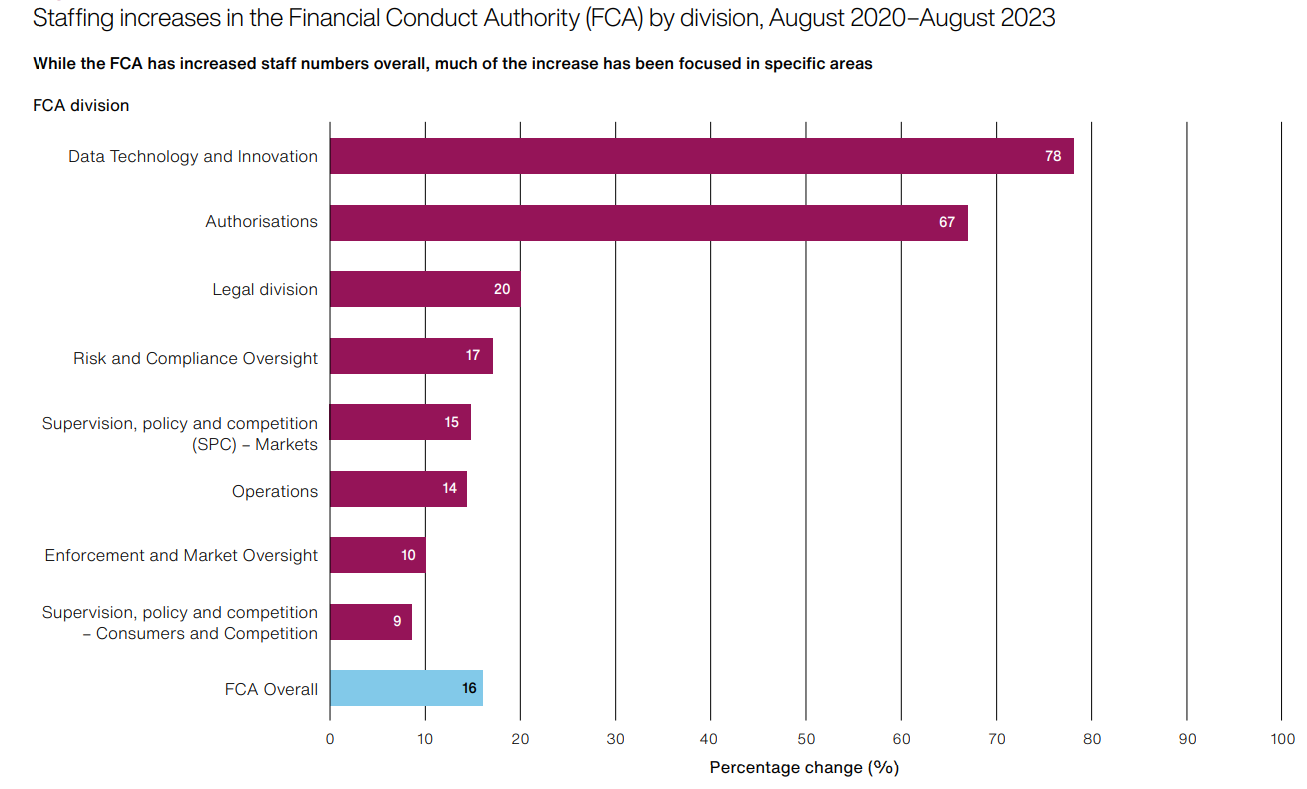The lack of specialized personnel causes the UK's financial market regulator to be too slow and unable to keep up with the growing scale of crimes in the financial and cryptocurrency markets, according to a study published in December.
The National Audit Office (NAO) report shows that the Financial Conduct Authority (FCA ) is adapting to its expanded responsibilities and regulatory shortcomings. However, the report emphasizes the importance of effectively managing risks associated with these changes, particularly in areas like reducing financial crime.
FCA Is Too Slow
The financial services industry in the UK, with a value exceeding £170 billion, is undergoing considerable changes. The FCA, regulating around 50,000 firms, embarked on a transformation program in 2020-2021. This initiative was a response to the evolving landscape and aimed at reshaping the organization, an effort that initially saw high staff turnover but has since stabilized.
"The FCA is undergoing significant reform, responding to changes in the financial services regulatory framework and making operational changes intended to improve performance," Gareth Davies, the Head of NAO, commented.
The Financial Services and Markets Act 2023 (FSMA 2023) granted the FCA greater authority to develop regulations and introduced a secondary objective of promoting the UK's international competitiveness. The NAO's report scrutinizes the FCA's reaction to these enhanced powers and the fast-paced market changes.
Despite its proactive stance, the FCA has faced delays in addressing issues and enforcing regulations. For instance, it required additional legislative support to impose standards on "Buy Now Pay Later" credit providers.
A noticeable delay was observed in the FCA's enforcement against illegal crypto ATM operators. Crypto-scams rose from over 3,000 reported in 2020 to over 6,300 in 2021. Yet, the FCA only began enforcement against illegal crypto ATMs in early 2023.
How FCA Tackles the Problem?
From 2020 to 2023, the FCA invested £317m in its transformation program. It increased its staffing by 16% during this period to counter high turnover rates. The recruitment focused on addressing the need for specialist skills, particularly in the crypto sector, where the FCA faced challenges in registration and enforcement due to skill shortages.

"The FCA must complete its work on optimizing its use of data, assessing whether it is achieving the outcomes it intends and whether it is able to direct resources to where they can have [the] most impact," Davies added.
The FCA is also enhancing its data management capabilities, upgrading its data lake, and creating tools for better information access and analytics . These measures aim to mitigate data risks and improve operational efficiency.
The NAO advises the FCA to refine its operational processes and collaborate with stakeholders to assess the effectiveness of new accountability arrangements. Additionally, the FCA is encouraged to provide clearer performance metrics and develop a long-term workforce plan.
The FSMA 2023 has significantly expanded the FCA's rule-making power and brought it under closer Parliamentary scrutiny. The FCA is also tasked with setting up new mechanisms for independent accountability and is expected to have these in place by 2024.


















